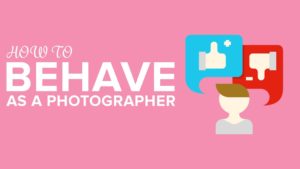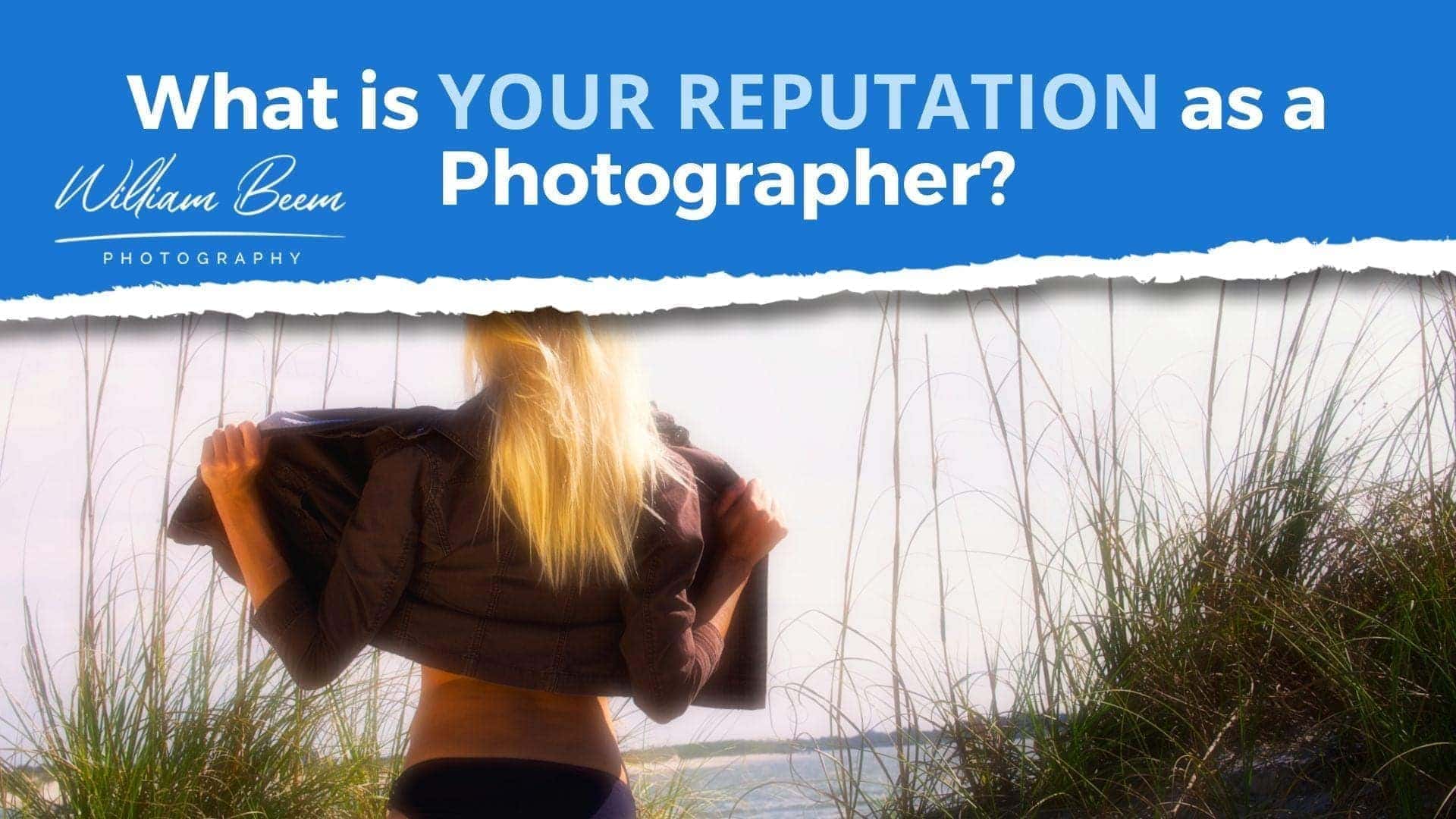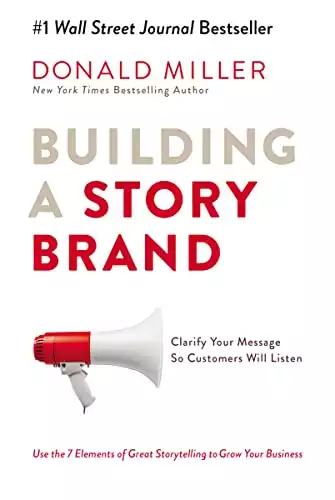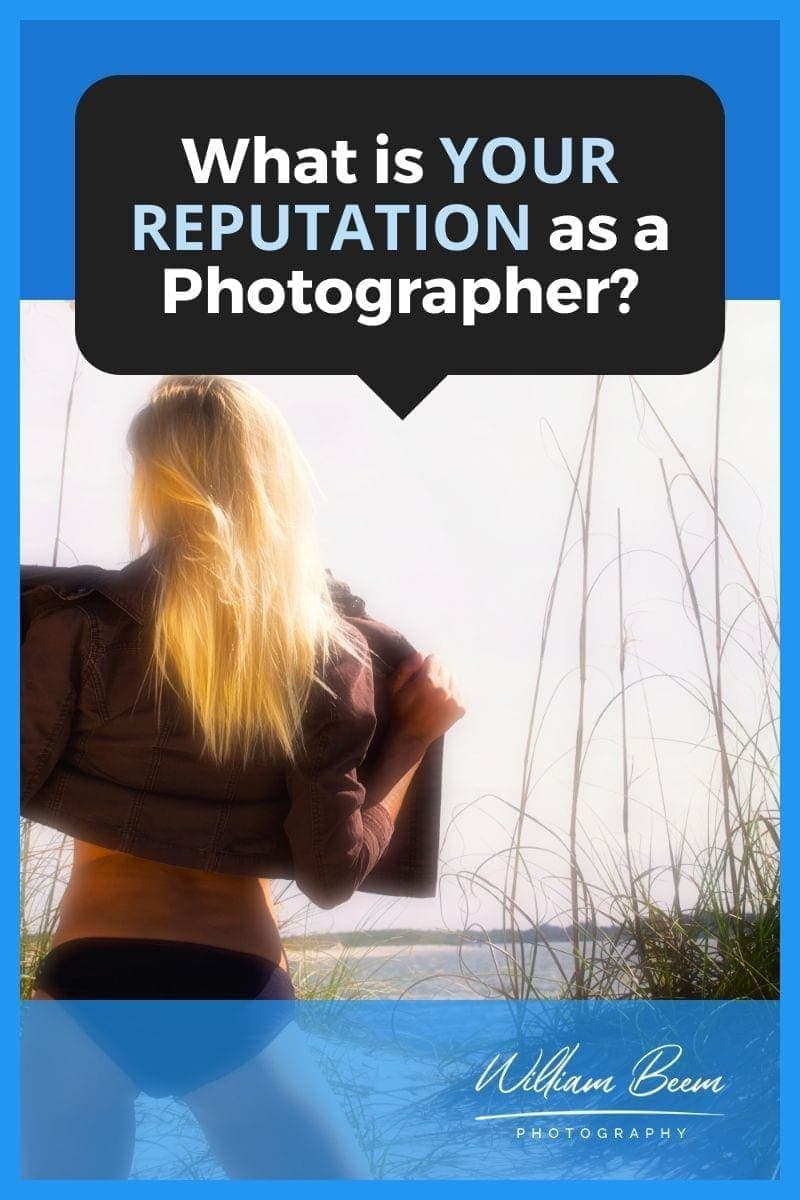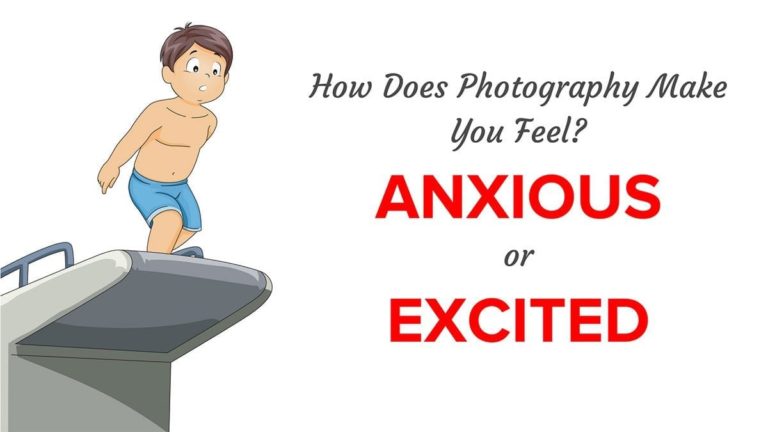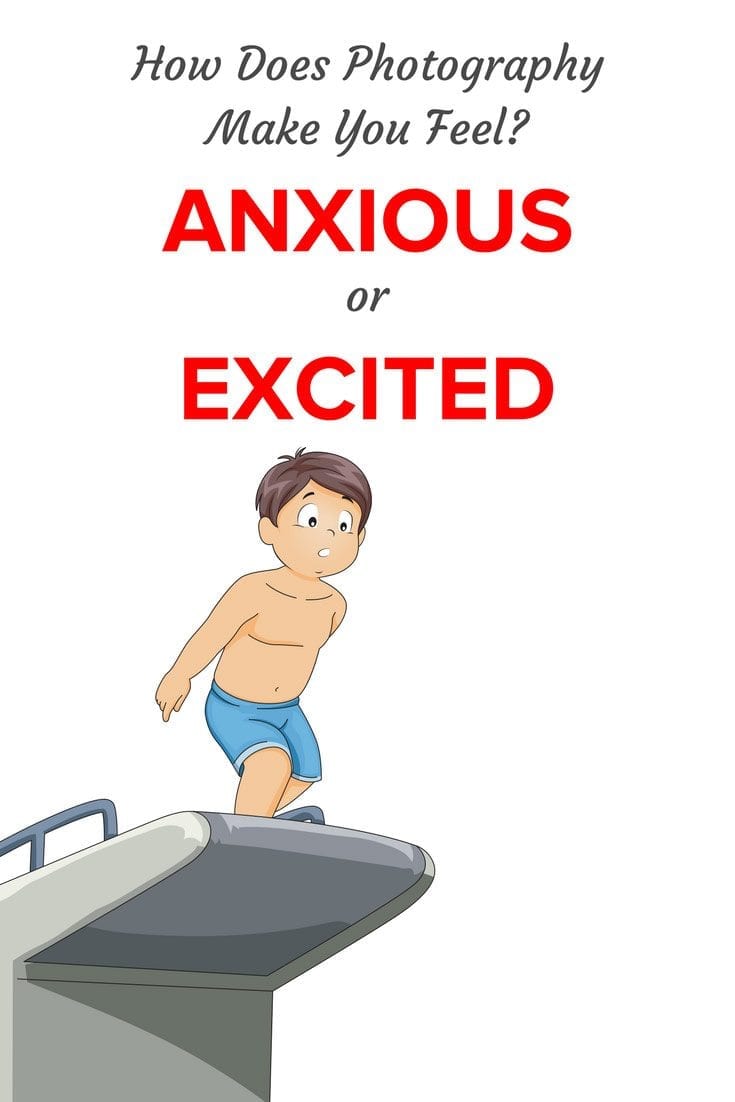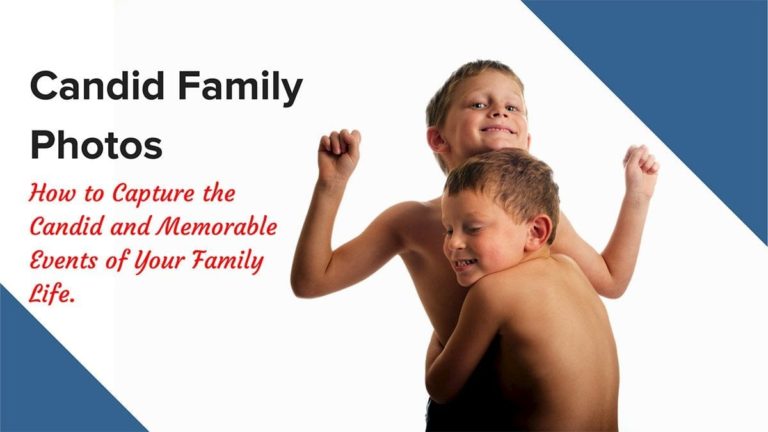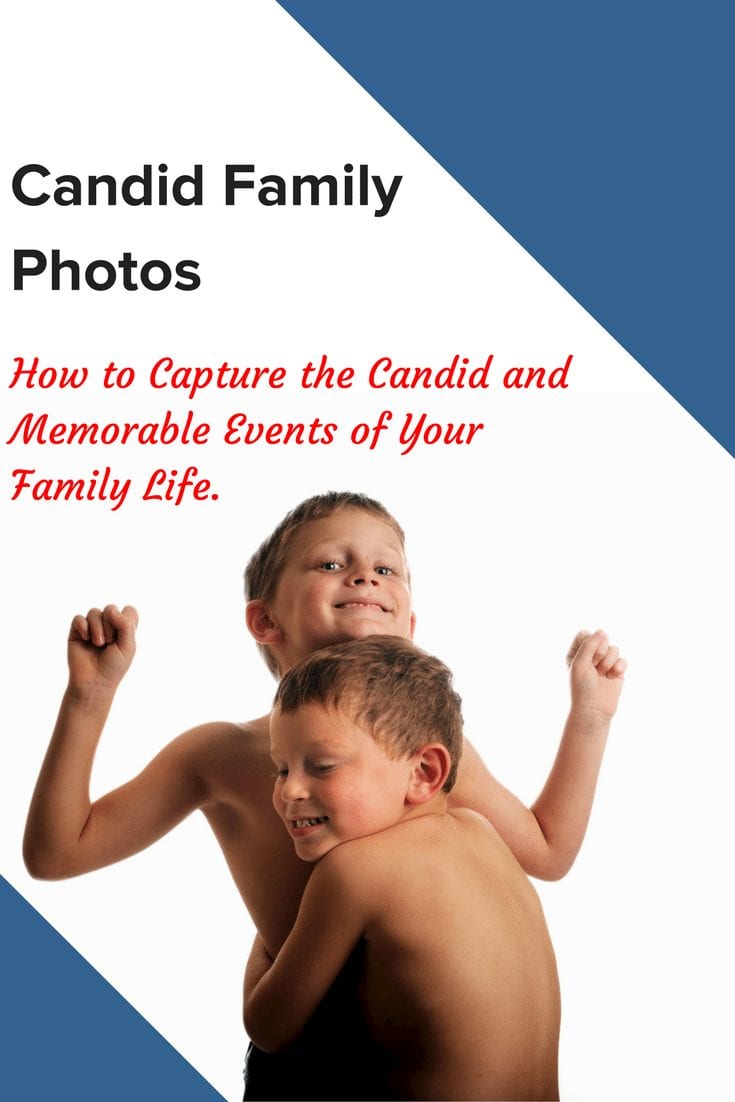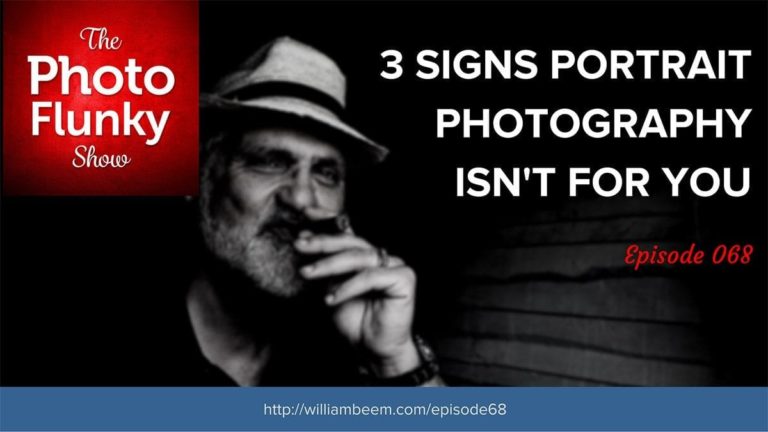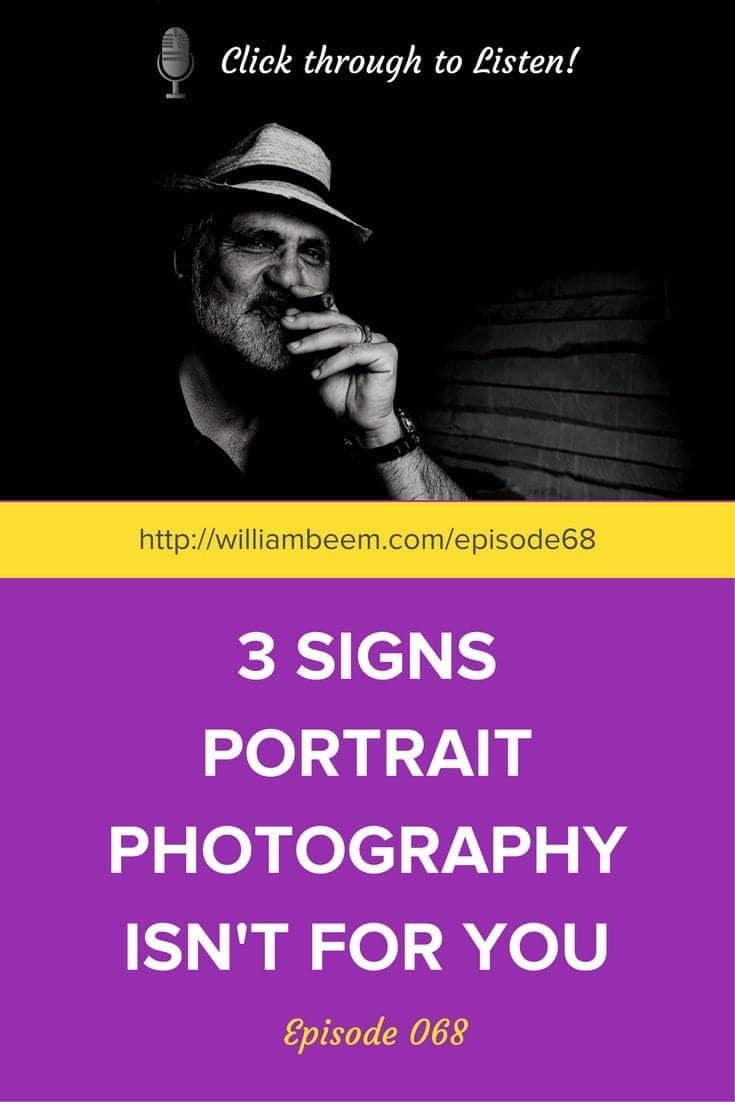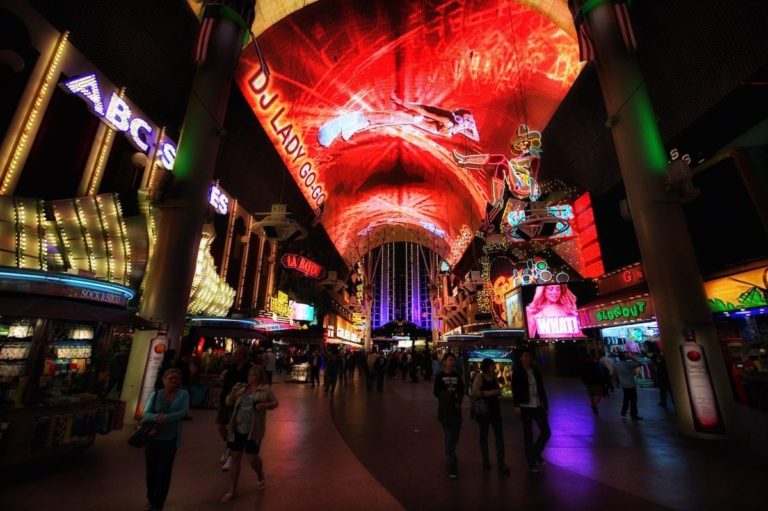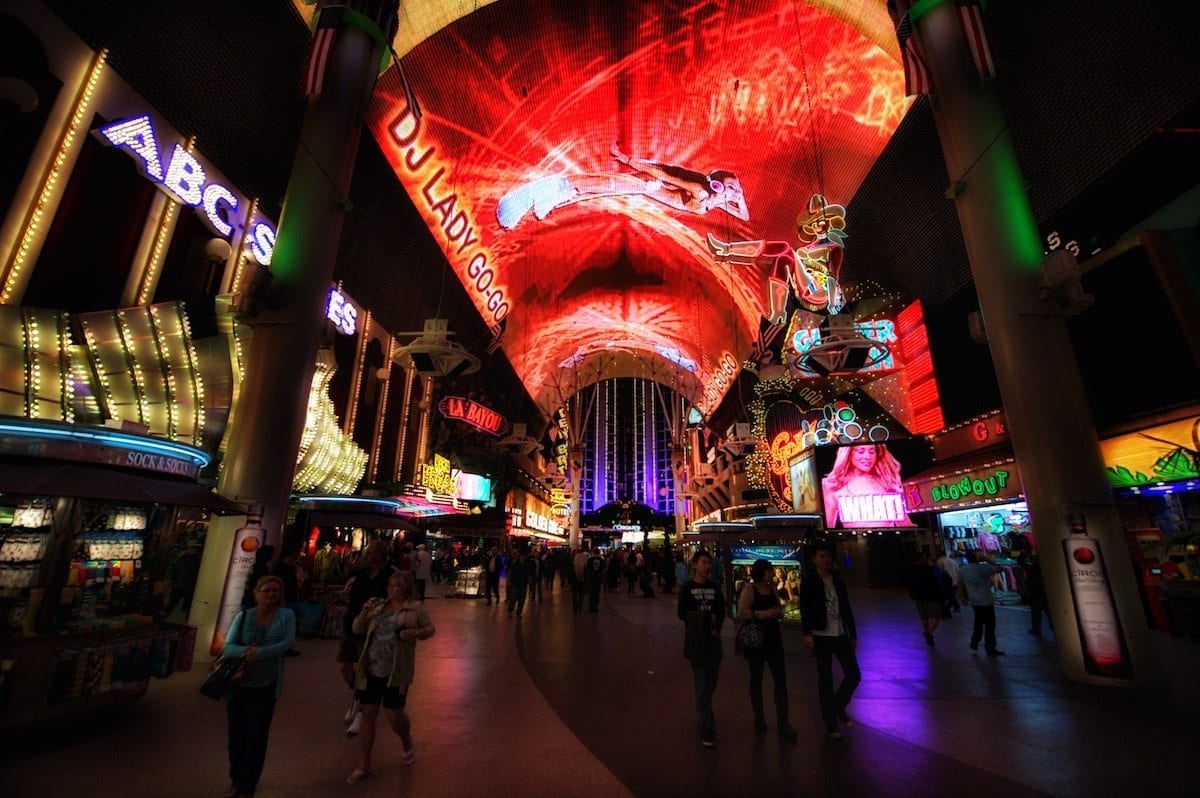Affiliate Disclosure: We earn a commission if you purchase through one of our links at no additional cost to you.
Your reputation as a photographer is your brand, whether you realize it or not. Whether you are in business as a photographer or prefer to remain an amateur or hobbiest, you need to consider your reputation and how it may impact your ability to collaborate with others in the future.
In this episode, we’ll go over what your brand is and what sort of things may affect what people think of you.
Your Reputation is More Than the Company You Keep
They say that you are the sum of your closest friends. That may be true, but the company you keep isn’t the only thing that affects your reputation as a photographer. Seemingly innocent activities have a way of revealing themselves in public these days.
It’s getting harder and harder to compartmentalize your private life from your public reputation. We see people losing their jobs for something they posted on social media, so your reputation can have a drastic impact upon your entire life.
It’s important to stay up to date with issues that may impact your reputation as a photographer – both inside of your photography activities and in other realms of life.
If you wonder what others say about you, go do a Google search to see what results you get.
Time Stamps
Whether you're a professional photographer or an amateur or hobbyist, however you want to describe it. One of the things you need to take care of is your reputation as a photographer. And that's what we're going to talk about today on I Like Your Picture. Hi, I'm William Beem. Welcome to, I Like Your Picture. The show that helps you improve your photography with visual storytelling.
What is visual storytelling? It's a method of approaching your photography with a knowledge of who you're trying to serve with your photos and what emotion you want to make them feel. We encourage you to concentrate on your subject, light and background to create a photo your audience loves. I'm glad you found us. Hi, my name is William Beem. Hi, my name is Lee Beem. Lee Beem is dancing in her chair again,
trying to get me to crack up, you know, with an opening, but I'm not falling for it. Hey, today, we want to talk about what is your reputation as a photographer? And as you can tell Lee's reputation is, it's kinda sliding a little bit here. So what we hope that you can take away from this is first off.
Why do you need to worry about your reputation, particularly if you're not in business, but you're still a photographer that may have something to share. We're going to talk about what your brand is, and we're also going to give you a number of issues to kind of consider that affect your reputation. So let's start off with Lee as we always do, because I like to go with ladies first.
Yes. Do you have any idea how your reputation affects your photography? I think your reputation, what people don't realize is they look at their life in separate, separate little compartments. Your hobby is a photographer and perhaps you make some money out of it. So you've got your photography following and your day job, your, let's pick a job. Let's say you're a pharmacist.
I'm just throwing something out there. You're a parent. And you've got some friends who like to go off clubbing at night and you'd like to have a whole bunch of drinks. You've got these little pockets of your life. And I think, you know, it's absolutely fine. I think it's healthy to have all this, this balance in your life. But what people forget is that your reputation for one infiltrates into the others,
because people see you as a whole. If you want to have a good reputation as a photographer, you have to keep that reputation everywhere. And that doesn't mean don't go out and have fun does mean kind of break out of the box and things. I think there's a difference between being different and kind of breaking some little barriers where it comes to integrity and just your ethics,
your conduct and respect to other people. And your reputation is going to affect your photography. Because at some point you're going to interact with other people and that's where your reputation really comes into play. It doesn't matter if you're in business or not. So in other words, if you're going on social media and sharing, or if you're putting something in a gallery,
people want to know your reputation and they want to know what kind of person you are. And that's going to help them make a decision on whether they like your photography or not based upon what they like you or not. I got some advice a long time ago, people buy the artist, not the art. that's very true. And your reputation is what people think of you as an artist.
Let's skip ahead to, when I talked about defining your brand, your brand is how other people perceive you. It's not just a matter of what fonts you use on your website or what colors you use, or even the genre photography you do. Your brand is how other people perceive you. All of those things go into defining and developing your brand. If you're an amateur or hobbyist photographer,
do you need a brand? I think you have a brand, whether you knew it or not, it just is in its very early stages of development. It's not always, you don't always know exactly what it's going to be and it's not identified, but those formative moments or months or years, when you're still kind of finding your way, those all form part of who you become as a photographer.
One of the reasons that this came, this whole topic came up is because of some things I was reading on social media. And it's a model that I know. And she was kind of confused about a photographer who, let's just say that he was behaving inappropriately. When a model comes out on social media and says to other models, other women do not trust this photographer.
He is trying to do inappropriate things. That's affecting his reputation, his ability to work with other models and do portraits in the future is going to be severely diminished. And, look, if this guy is doing the things that the model said, I think it ought to be diminished. I think he ought to get out of the field. It's not just being creepy around a model
that's going to affect your reputation. It's also how you do things that you may not even think are related to photography. One of the examples I'll give is on social media. I know photographers out there who make it a point, like when they're on Twitter, they don't say a word about politics or other hot button kind of issues. Yeah. But they still go ahead and they click and like what other people have said and Twitter,
will go ahead and show you what this person liked. And I think Twitter is not the only one that does that. So even though they've never said anything, you get a picture of how they feel emotionally and privately that maybe they did not intend to share. And it didn't use to matter for the most part, unless it was something extreme or something that kind of challenged your moral or ethical boundaries. And that
All I think that happens and always has, and always will, to a certain extent. I think you just, that's just part of the reality of life. But I think recently everything seems to be a hot topic as like, if you don't want it broadcast into your business, you kind of got to keep your little social circle Non-public. Well, we're in an election year.
Tempers are high in 2020 for elections. And I think they are, and people will get turned off or maybe, you know, they'll like what someone else likes and what get shown to him on social media is to the point where everything that you do in public affects your reputation as a photographer. And it also helps define what your brand is. Yeah.
And I don't, I don't care what politics someone has. I'll agree and disagree with someone, but I'm not going to judge someone that I've found to be a good person or a good friend, or what have you, just because they may differ with what I like on a political spectrum. But at the same time, I realized that I was probably commenting on things publicly that I wish I hadn't. And Lee, I don't know what you think.
Should you just go ahead and say what you want to say and put it all out there in public and then let the chips fall where they may, or do you need to be a bit more mindful because what you say may impact what you're doing later on in your, in your hobby or your business. To me, this is a very personal choice.
And rather than say, there's right or wrong, I think it's more important that you're aware of consequences or potential potential consequences of being outspoken. For some people, part of who they are and their identity is about being kind of brash and upfront and just completely unfiltered. And if that is who you are and the way that you're, I think it's easier if that's the way you were already knowing you don't have a problem with saying,
I'm going to turn off certain people, but those aren't my people and I'm going to attract others. The problem comes in and I think this affects maybe smaller, smaller patient in the sea when it comes to this. I think you, you have a little less clout when it comes to that. I think if you're trying to build your brand, it's sometimes better to just err on the side of caution until you're established and then decide the direction you want to go.
So I don't think it's necessarily wrong to be outspoken. I'm terribly outspoken. I mean, I've got no filter. I'm not the most tactful person. I think the nicest description, nicest way of describing it as what my husband said. And he said, you're blunt. So I do kind of blurt out what I'm thinking. And it's not that I'm not capable of tact.
I just think that it's kind of cotton balls, things that people don't understand. So I prefer to get it just out there. You don't want to tip toe around. I don't having said that there's certain things that I think is nobody's business and some things that are other people's businesses that I feel like it's not my place to get involved. And that's where I'm different.
I don't comment on anything political or ethical or about I dunno, basically anything that can be really controversial. I don't touch public posts for the most part on social media. I don't even read because that's not where I read my information. I kind of go on there to connect with people. And then I disappear again. I found that this year I'm kind of backing away from things as well,
too. Not that I'm saying that you should. Be yourself. I think you ought to be who you are and you've got to make your own determination is how does this affect your brand? How's this affect your reputation and make your decision there. Some people will go ahead and get separate social media accounts so they can say what they want personally, maybe under a pseudonym.
And then they have their brand with their name on it or their business name on it. And that's what they only talk about. What's their topic. I'm not saying that either of these options are right or wrong, they're simply decisions that everybody needs to make. But in my case, I've found that some social media platforms just really make me feel awful and mean,
and they cause me to say things that I later regret and that's kind of like Twitter. I haven't deleted my account, but I don't play with Twitter anymore. Everything I saw on there was just, I don't know. It was just rude. Yeah, I guess. I mean, I haven't been on there in a couple of years. People say things on social media,
they probably wouldn't say in person or face to face, particularly with friends, even if the friends had different views than they did. That's one of the things that I find that some folks are going on social media or other platforms and just letting something rip. You, meet them. And they're actually nice people. And you think, Oh, actually you're pretty cool.
Like what good. And that's why it's like, I've got folks that are on social media, they're friends, but I don't have them friended on social media because we have different views. I'm okay with that. When I see them in person, you know, we'll give them a nice hug or handshake or whatever it may be. And we don't talk about these issues. On social media,
even if they're not talking to me, I see when they're blasting something. And I thought that's not the person that I think that I know. So I just kind of let it go. And I don't follow that anymore. But who you follow is kind of like the company you keep defines who you are. That's kind of a scary thing to think that just because you've got a friend and maybe they behave a little differently on social media,
whether you follow them or not, it defines the company you keep and maybe on social media that people see you based upon that. There are certainly a lot of other issues that you ought to consider that impact your reputation. And we're going to get to things that are a bit more as a photographer rather than I think explosive social issues. Well, I think social media is actually a big part of this.
And here's why - as something that wasn't an issue five, maybe five years ago, 10 years ago, and I'll really a big thing. But people working remotely and even if you're not working remotely communicating, marketing, branding, you know, everything that you're doing communicating is done by text. Usually if you went to work, you went to work. Customers walked in at the door,
people picked up the phone and called you there. And then you got a letter as confirmation or you'd get a letter and you'd kind of call them back and speak to somebody. Something that I think people have lost sight of that used to come up quite often in the early days of kind of communicating by email or on forums or Facebook or whatever in its early days, is that you have to be very careful when you are typing something.
You've got a certain tone and intent when you type something out in your, you know, in your head. But when you read it back, the other person is going to read it based on how they feel when they come across that. So sometimes what you've said is perfectly fine and people can read it and take it as an attack or a criticism.
And I think it can be a big problem. It really is that I think it's something that we maybe need to pull ourselves back towards. Just remember things get lost in texts because you don't have eye contact. You don't have body language, you don't have a tone of voice. You aren't able to kind of see a person who actually go, Oh no,
I didn't mean that. Oh, do you have questions? There's no way to kind of work through it. You put it out there and it's there. And then the other person puts it out there and it's there. And I think things are just so things kind of get shopped through. It's just a lot harder. I think, to work through things together,
that way, We've talked about how you interact with people on social media and that's not the entirety of your reputation. Consider how you promote yourself as a photographer. If you're doing baby photos, you know, family photos, you might use a softer touch. You might use select fonts and colors for your promotions that are light and airy. And maybe they're going to attract that kind of audience.
Whereas if you're into glamour photography, you may have a very different set of colors and promotions and fonts and everything that you put out there. So how you promote yourself as a photographer is part of establishing your brand. I think it's unlikely that someone is going to hire a person who promotes his or herself as a glamour photographer for someone to who wants newborn photos and same thing.
If you do boudoir photography, you are probably not going to be called in necessarily for kids' birthday party. Maybe I was, was actually going to go with commercial photography, but, and that's okay. It is good to niche down. It's good to have a focus of what you do. So you can be known as an expert within your field. I don't think there's a problem with any of those genres,
but if you're still at the place where you're experimenting, I'm doing a little bit of this, a little bit of that. You're trying to appeal to everybody. You're not going to. You need to choose something. And that's how you ought to promote yourself as a photographer. The same thing goes with the genre photos you share on social media. If you're working for something where people are maybe a bit more sensitive or family-friendly,
you don't want to be sending them the glamour shots out there because you want to work with the local models. And I don't think there's a problem, really, if you have more than one niche. I think of someone like Moose Peterson, he does wildlife photography. And then he got into aircraft photography. The two are not the same, but they also don't conflict with each other.
Yeah. I look at Scott Kelby, he does portraits. He does travel. And he also does sports photography, separate genres. They show his expertise in different areas. They don't compete. The ones that I'm was giving an example is like family-friendly versus glamorous. Those kind of compete with each other. Yeah, I think so. They just, they kind of separate that.
There's a little line there that I think for a lot of people, it just doesn't really matter. You know, it's, it's different forms of portraits. So technically it doesn't matter. But I think you have to look at the perception of the audience And that's really what I'm getting at is this is John, both photos you share on social media will give a perception of you from the audience.
And it may make the difference between getting someone to work with. And remember is not just about people who are in business. This is also about people who need to collaborate with others because it's fun. And because it's a hobby or it's because the people you want to work with just to create some photos. The photos you share will help derive the audience or attract the audience you want and maybe repel some others.
Yeah. I think if he knew though, this is the thing where it's maybe a little different, when you still try to find your feet, you in your early period of, of trying to find what you want to do and find your genre. I think it's actually a good thing to get feedback on different things. So in that case, share everything that you're doing.
and I know this kind of conflicts with the beginning, but with what we said in the beginning, I think you have to find yourself. So there is a little bit of a balance there. Once you kind of get a feel for where you going. I think you start to tighten in the reins, but for someone who's new and trying to find out what they really love,
that I actually think it's not a bad thing to get feedback on, you know, different genres that you, you play around with it. You might get a feel for, you might meet somebody who can help you with something you find out that you love it. It's opens up potentially some opportunities. And it might also show you where not to waste waste time.
Look, I think new people into photography want to experiment. It's a good idea to experiment, to find out what you really like. People go out there and they just take pictures of almost anything. Be honest with yourself and look at your photos and say, is this what I enjoy? And am I any good at it? If you've taken some photos that look like crap,
trust yourself. They're crap. And I can say that from my own photography. Look, I tried travel. I've tried portraits. I've tried food. I've tried events. I'm horrible at as events. I'm not really interested in sports. Therefore I don't know the right moments to look for. And I don't get the right compositions. I, I'm not good at sports photography because I don't really care about sports.
I only did sports photography because I had some friends who are into the activities that I photographed. I went out, took some photos of them and I came back and said, this is not my thing. So there's, there's nothing wrong with trying different genres. But when you've figured out what you'd like to do, you got to figure out, okay,
how am I going to present myself? And also you want to look at your consistency as a photographer. People don't want a photographer who's all over the place. You got to find your style. Then you stay consistent with it. Your style as a photographer also matters. Are you doing, we mentioned light and airy for portraits before. Are you doing dark and dramatic or are you changing your style with every photo session that you do?
I think there's something good about developing your own style. It's kind of like your ID in a way. It's like people know your photos just by looking at them. If even if they haven't seen them before, because you're doing something that is, that has some consistency with your post-processing, your composition and your eye for the subject matter. I can tell photographs by some photographers just by the way they look.
And that might be the color grading. It might be the type of photos they take. It might be their composition of them, but you start to look at like, Oh, that looks like Annie Liebowitz. That looks like a Vanity Fair photo. That looks like a Sports Illustrated photo. And you start looking for those telltale signs and then you want to develop your own style.
Now, if you're working with people again, whether it's the business or collaborating with people for fun on a project, they're going to notice whether you keep your word and your commitments, you know, do you show up on time? Do you deliver the results on time? And those things really matter. I mean, Lee, what's your impression of somebody who tells you one thing and then their actions don't follow through with what they said.
It comes down to communication. So I've got two very clean cut ways. Do you know what if people communicate with me, like I'm running late to this has gone. And they, you know, this isn't going to plan and you know, can you work with me here? I'm actually probably more lenient than I should be as sometimes I'm prone to maybe wasting a little more of my time than I could with that.
I've just got so much understanding for, you know, life happens. When people do not communicate I'm actually, I'm horrible, and you know, if somebody doesn't show up on time, it's like, you're five minutes too late, bye. Like you could've called. And I've actually just shut people out and gone. That's it. If you do not communicate with me. Now,
that's assuming I've given you contact information, which I think these days you typically do. If you've got my phone number, I expect you to call me if you going to be late and I'm going to be fine with that. Yeah. If you're late for a photo shoot, or if you're late with delivering the results, set expectations. You know, that's part of managing expectations.
And I think that's also part of your reputation and your brand. Well, we have that with some work we're doing around the house this year. I mean, I'm pretty brutal and William always looks over. It'd be, I got these and I, you know, I'll just go he's out. Nope. Sorry. No good. Couldn't couldn't call back on time.
Didn't you know, it didn't make the effort and I just, there's no comeback on that. So I'm, I'm more on the extreme edge of both sides. We had contractors that did an outstanding job and communicated very well. And we had others that screwed up royally. Now the person they had doing the work was outstanding. He knew his craft very well,
but the management of the company didn't communicate. Didn't get the right things, delivered something that wasn't what we expected. And we had this little dichotomy between an excellent worker doing the job and the management who just really didn't seem to be on the ball at all. Yeah. But don't worry. We clearly communicated that very loudly. Yes. We also got rid of some people who we didn't like the way they were doing business.
We were like, goodbye. Now the last one I want to bring up is, do you appear calm and competent? And particularly I'm thinking about this in a portrait session. I don't know if it matters so much with travel photography, but. And this kind of comes around from something Lee's told me when I'm doing photos for ourselves at home, I'll stomp around and cuss.
Like, where is this now? And it's like, I realize it's a horrible presentation. Lee will forgive me. I don't know if a model or anybody else would I behave like that. When I'm in front of other people, I want to appear calm because I don't want to distract or disrupt how they're feeling. I mean, if I go out there and I look like,
I don't know what I'm doing, they don't want to work with me again. They don't want to recommend me to anybody. And also it just it's part of my brand and that kind of thing builds. And you might not even be paying attention to it. You also want to look competent. In other words, you want to know what your settings are.
You want to know how to use your camera, your flashes, or any other gear that you have. So you need to practice perhaps before you get in front of somebody. And if that's I say practice, if you're not doing this on a regular basis. If you're in business and you're taking portraits all the time, every session is practice. If you haven't taken photos in six months,
and then you go out there and then you don't know what's going on, you look incompetent and you're probably not going to be calm. That's just a part of that's part of, you know, dealing with issues that can impact your reputation. And honestly, as we said, whether you're in business or you're dealing with things as a hobbyist or an amateur,
your reputation matters. Because that's what's going to decide if anybody else wants to collaborate with you or not. Thank you so much for joining us on I Like Your Picture. This is episode 241. So show notes will be on Williambeem.com/episode241. I am sitting here trying to think about my own reputation as a photographer. And, hopefully I've got a reasonably good reputation.
I'm going to be doing a little bit more work on my reputation because some of those things I said on social media. Now let's see how many people go try and find them. I might be fooling you. We'll see you again next week.
Related Links
This is an affiliate link to Amazon for a book I recommend on understanding and managing your brand.
